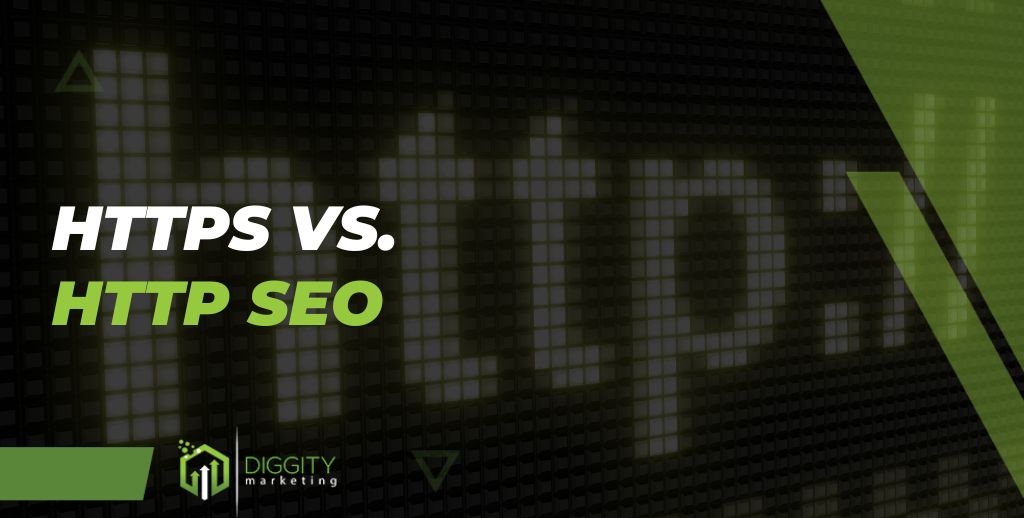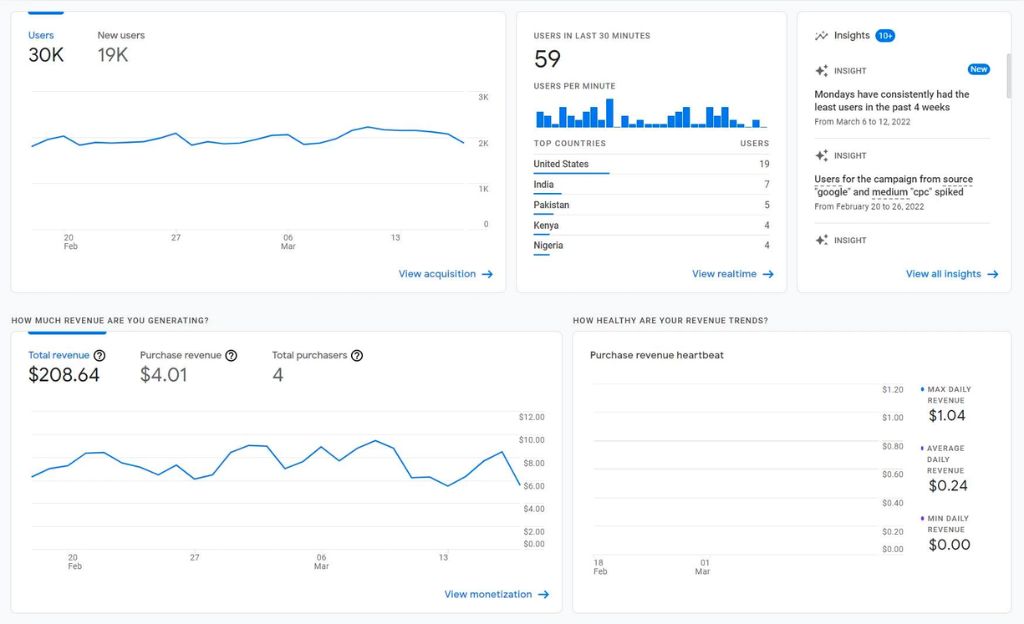
As the world becomes more digital, website security and user trust are increasingly important. One of the most significant steps you can take to improve both of these aspects is to switch from HTTP to HTTPS.
As an SEO expert with years of experience, I’ve seen firsthand how switching from HTTP to HTTPS can significantly impact a website’s success.
In this guide, we’ll explore the difference between HTTP and HTTPS, uncover the top SEO benefits of having a secure website, and walk you through the switching process.
Table Of Contents
Quick Summary
HTTP and HTTPS are two protocols used for data communication on the web, with HTTPS providing a secure environment favored by search engines like Google.
Implementing HTTPS on your website boosts SEO performance and search rankings, increases user trust, supports modern web technologies, and more.
While switching to HTTPS offers numerous benefits, it’s crucial to approach the migration carefully, as implementation errors can lead to potential SEO issues.
What Is HTTP?
HTTP, Hypertext Transfer Protocol, is the system for transmitting and receiving information online.

The protocol allows users to access and share data between web browsers and servers. When you type a URL into your browser, it sends an HTTP request to the web server, which then sends back the requested information as an HTTP response.
For example, when you visit “http://example.com,” your browser sends an HTTP request to the server hosting that website, and the server returns the web page’s content to your browser to display.
What Is HTTPS?
HTTPS, Hypertext Transfer Protocol Secure, is a secure version of HTTP. When browsing the internet, HTTPS uses SSL to encrypt the data, keeping your sensitive information safe while it’s being sent between your browser and the server.

HTTPS was created in 1994 but only gained traction as the standard around 2019. A big reason for that was Google’s recommendation in 2014, urging websites to switch to HTTPS for better security and user experience.
The Main Difference Between HTTP And HTTPS
The main difference between HTTP and HTTPS is that HTTPS encrypts data using SSL. This approach makes sending sensitive information like login credentials or personal details way safer.
HTTPS adds an extra layer of security to protect your data from hackers and other prying eyes.
The Role of SSL As A Ranking Factor
Regarding the role of SSL as a ranking factor, there are three key aspects to consider.
Encryption
SSL helps encrypt the data transferred between the user’s browser and the website’s server. This keeps sensitive information secure from hackers and other malicious actors.

Data Integrity
Data integrity means the transmitted information remains unchanged, preventing data tampering and corruption.
Authentication
SSL provides authentication, which verifies the identity of the website you’re visiting. This is crucial for establishing trust and ensuring you’re interacting with the intended website, not a fraudulent one.
Top SEO Benefits Of HTTPS
By 2018, a jaw-dropping 70% of Google’s first-page results were HTTPS sites. These are some of the main SEO benefits you will experience when switching to HTTPS.
1. Enhanced User Experience
Google loves secure sites, and now, with Chrome, users get a heads-up when a site doesn’t have SSL certificates, labeling it as “Not Secure.”

By using HTTPS, you’re meeting Google’s high standards and giving your visitors a better experience.
2. A Secure Site Can Increase Dwell Time
Dwell time is the time users spend on your website, and it is crucial for SEO.
While it may feel like you’ve poured your heart and soul into creating the content on the website, quality is in the eye of the visitor, and short page dwell times can indicate the content is not capturing the visitor’s interest. If your content does not encourage them to remain with you, they will leave. The search engines can get a sense of this by watching the dwell time.
– Duane Forrester, Vice President of Industry Insights for Yext
If users see a “Not Secure” message, they’re more likely to leave, and Google’s spiders might think your site isn’t all that great.
3. Sites With HTTPS Load Faster
Studies reveal that 55% of users will wait a maximum of five seconds for a page to load. That is why it is crucial to do proper site speed optimization.

With HTTPS sites being 83% faster than any HTTP site, you can ensure your page loads before users quickly get bored and run away.
4. Provides Accurate SEO Reporting
With HTTP sites, referral data can get lost or misattributed, leading to inaccurate information in your analytics dashboard.
This makes understanding which channels drive traffic challenging, causing you to miss out on opportunities to improve your site’s performance.
HTTPS, on the other hand, preserves referral data, allowing you to make data-driven decisions and better allocate your resources to optimize your SEO strategy.
5. Protect Your Users’ Information
When users submit sensitive information on your site, they expect that data to be secure. With HTTP, the information is transmitted in plain text, making it vulnerable to interception by hackers.

HTTPS encrypts the data so it’s unreadable to anyone other than the intended recipient. This protects your users and builds trust in your site, leading to higher conversion rates and better SEO performance.
6. Secure Lock Icon
This might seem surprising, but almost 30% of users look for that lock icon when visiting a site [1].
Having HTTPS is like rolling out the red carpet for your visitors. It indicates that your website uses HTTPS and has valid SSL certificates, boosting your credibility and trust.
7. Better Performance In PPC Campaigns
Pay-per-click (PPC) campaigns are online advertising models where advertisers pay each time a user clicks on their ad.

Since Google and other ad platforms prioritize safe sites, using HTTPS can lead to higher ad quality scores, better ad placements, and lower costs per click.
8. Compatibility With AMP And Modern Web Technologies
Accelerate Mobile Pages (AMP) is an open-source project designed to make web content load faster on mobile devices.
As more people access the internet through their smartphones, having a mobile-optimized site is crucial for SEO performance.
HTTPS is a requirement for using AMP, which means that without HTTPS, your site could miss out on the benefits of faster-loading pages and an improved mobile user experience.
Modern web technologies like Progressive Web Apps (PWAs) and Service Workers require HTTPS for enhanced security and performance.
Step-by-Step Guide To Switch From HTTP To HTTPS
If you fear losing organic traffic during the migration, we’ve got you covered. Here’s how to make the switch smoothly:
Step #1: Acquire And Install An SSL Certificate
The benefits of installing an SSL certificate far outweigh the cost.

Check out SSL providers like WP Engine, Let’s Encrypt, Cloudflare, or ZeroSSL, and install the certificate on your website.
If you’re using WordPress, a plugin like Really Simple SSL can simplify the process. In the end, double-check that the HTTPS version is set as the default URL for your site.
Step #2: Redirect HTTP To HTTPS Automatically
Ensure your users don’t get lost in the transition by setting up a 301 redirect.
This will automatically send visitors from the old HTTP URL to the new HTTPS version.
Step #3: Update Search Console With New URL
Google Search Console is like your hotline to Google, so you want to keep it updated.

Add the new HTTP URL as a new “property” in Google Search Console. This will ensure that you still receive all that valuable SEO data.
Step #4: Find And Replace External Backlinks
External links are like gold stars for your website, proving to Google that your site is trustworthy.
To preserve your site’s reputation, use Ahrefs or Semrush to audit your backlink profile.
Make sure the HTTP links redirect to HTTPS. If not, just install the redirection plugin for WordPress and create the link yourself.
Step #5: Search For Crawl Errors And Fix Them
Head to the Coverage report in your Google Search Console accounts to ensure your internal links work.

Fix any broken internal links that Google doesn’t recognize by redirecting them to the secure site.
SEO Concerns and Implementation Errors
Setting up new protocols can be difficult, and these are some of the problems you might face:
Duplicate Content
When you switch to HTTPS, you might unintentionally create duplicate content.
Google might see your HTTP and HTTPS pages as separate entities, which can lead to some confusion.
To avoid this, set up a 301 redirect from your HTTP pages to the HTTPS versions.
Wrong SSL Certificate
If you end up with an SSL certificate that doesn’t match your site’s needs, browsers will block the website and display an error message, scaring away your visitors.

Choose the correct type of SSL certificate to avoid this and keep your site looking sharp.
There are various options, such as wildcard or multi-domain certificates, so do your research and find the one that fits your site.
The HTTP Version Is In Use
Sometimes, search engines can be stubborn and still use the HTTP version of your site even after you’ve switched to HTTPS.
To prioritize the secure HTTPS version, submit a sitemap containing only HTTPS URLs to Google Search Console.
FAQs
Should I Use HTTP Or HTTPS For SEO?
You should use HTTPS for SEO. HTTPS provides many advantages, such as improved search engine rankings, enhanced site security, and increased user trust.
It also ensures compatibility with modern web technologies like AMP and provides more accurate analytics data.

Does HTTPS Affect SEO?
Yes, HTTPS affects SEO. Although Google has confirmed that HTTPS protocols are not considered when indexing a site, HTTPS can give you an edge against your competitors.
Does Google Rank HTTP And HTTPS The Same?
No, Google does not rank HTTP and HTTPS the same. HTTPS is now used as a ranking signal by Google. So, your HTTPS site has a higher advantage in ranking over HTTP links.
Secure Your Site’s Future with HTTPS
Switching from HTTP to HTTPS is a no-brainer for anyone who wants to stay ahead in the SEO game and provide a secure browsing experience for their users.
From the benefit of enhanced user experience to better performance and more accurate SEO reporting, it’s clear that HTTPS is the way to go.
So take the plunge and transition your website to the secure and reliable HTTPS protocol. Your users and your SEO will thank you.
